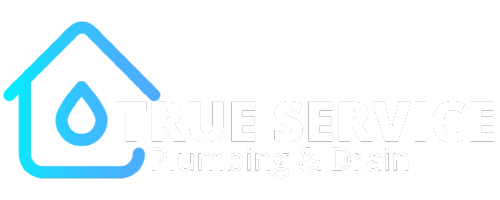It’s a question nobody wants to ask: why does my bathroom smell like sewer?
This unpleasant occurrence isn’t just a nuisance; it can signal underlying plumbing issues that require immediate attention.
Gaining insight into the root causes and learning effective solutions are vital steps to safeguarding your health and restoring the fresh, clean atmosphere of your bathroom.
Understanding the Sewer Smell in Your Bathroom
The dreaded sewer smell is a result of sewer gas, an odorous cocktail of different gases, invading your bathroom.
Primarily composed of methane, this gas isn’t just off-putting but potentially hazardous. Mild exposure may cause headaches, dizziness, and nausea. If left unchecked, it could lead to more serious health conditions.
But why does this gas enter your bathroom in the first place? The answer lies in your plumbing system.
Understanding this system and how it can malfunction is the first step towards finding a solution.
Common Causes of a Sewer Smell in Your Bathroom
There are several potential culprits when it comes to the foul odor permeating your bathroom. Here’s a more detailed look at each:
- Dry P-Trap: The P-trap is a critical component of your plumbing system. Its purpose is to hold water and create a barrier that prevents sewer gases from coming up the pipe and into your home. If a fixture like a sink, shower, or toilet isn’t used frequently, the water in the P-trap can evaporate. This leaves an open path for sewer gases to make their way into your bathroom.
- Blocked Vent Pipe: Your plumbing system has vent pipes that direct sewer gases out of your home. These pipes also help maintain the right pressure in your system. However, if these vent pipes are blocked – perhaps by debris or bird nests – the sewer gases can get trapped and forced back into your home, causing that unpleasant sewer smell.
- Sewer Line Problems: If your main sewer line or its connections have a blockage, a break, or a leak, sewer gases can escape. This is a serious issue that can cause significant damage to your property and may require extensive repairs.
- Toilet Wax Ring: The wax ring under your toilet creates a seal between the toilet and the sewer pipe. If this ring deteriorates or isn’t installed correctly, sewer gas may escape around the base of your toilet.
- Other Drain Issues: Any drain in your bathroom could potentially be the problem. A clog, a malfunctioning drain, or an improperly installed drain could all allow sewer gases to escape.
When to Call a Plumber
Recognizing when it’s time to call in the professionals is critical. Here are some indications that it’s time to reach out for help:
- The smell persists even after you’ve tried simple DIY fixes like refilling the P-trap or clearing potential clogs.
- The smell is strong and consistent, indicating a serious issue, potentially with your main sewer line.
- You notice other signs of plumbing problems, such as slow drains, frequent backups, water damage, or lush patches in your yard above the sewer line.
DIY Fixes to Try
Before reaching out to a professional, there are some DIY fixes you can try:
- Refill the P-Trap: If a fixture isn’t used often, run water in it for a minute to refill the P-trap. This should block the sewer gases from entering your bathroom.
- Inspect Toilet Seals: If your toilet wobbles or appears unsteady, the seal might be compromised. Try tightening the bolts. If that doesn’t help, you may need to replace the wax ring.
- Check for Other Drain Issues: If you have a clogged drain, try to clear it using a plunger or a plumber’s snake. However, be gentle. Aggressive use of a snake could damage your pipes.
Remember, these are just temporary solutions. If the sewer smell persists, it’s a clear sign that you need professional help.
The Importance of a Professional Plumber
While DIY fixes can offer temporary relief, they’re not a substitute for professional expertise. Here’s why calling a professional plumber is essential:
- Expert Diagnosis: Plumbing systems are complex. A professional plumber has the experience and knowledge to accurately diagnose the problem, saving you time and money in the long run.
- Proper Tools and Techniques: A professional plumber has the right tools and techniques to handle any plumbing issue effectively and safely. This isn’t just about fixing the current issue; it’s also about preventing future problems.
- Comprehensive Solution: A plumber will not only fix the issue at hand but also provide advice on maintaining your plumbing system, preventing a recurrence of the problem.
Conclusion
A sewer smell in your bathroom is more than just an annoyance. It’s a clear sign that something isn’t right with your plumbing system.
Addressing the root of the issue is crucial for maintaining a healthy, comfortable living environment.
While DIY fixes may provide temporary relief, a professional plumber will ensure a comprehensive and lasting solution.
Resolve Sewer Smell Issues with True Service Plumbing
When dealing with sewer smell on your property in Toronto and the surrounding GTA, True Service Plumbing is the trusted solution for both residential and commercial clients.
Our licensed experts not only understand the complexities of plumbing systems but are also equipped to handle any issue efficiently and effectively.
Experiencing a persistent sewer smell in your bathroom? Our seasoned professionals can diagnose and eliminate the problem, ensuring a comfortable, odor-free environment for your home or business.
Don’t let the smell of sewage compromise your comfort and health. Reach out to True Service Plumbing today. We’re committed to making your plumbing system a source of reliability, not concern.


